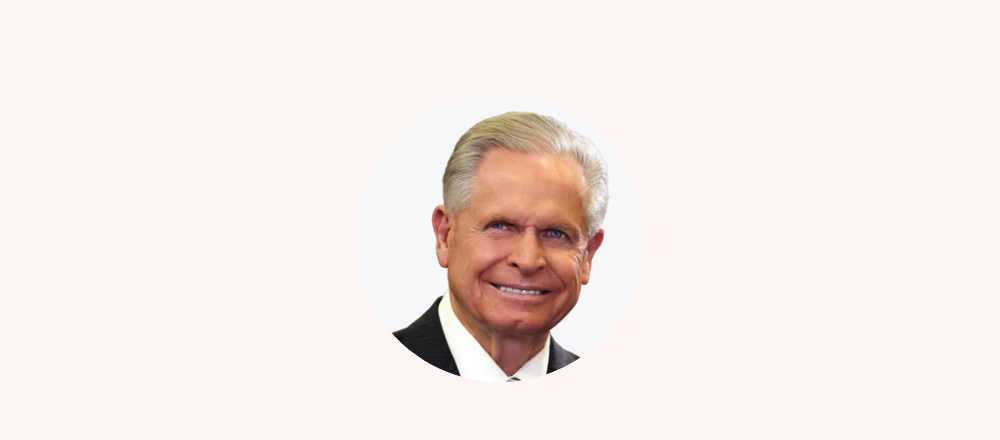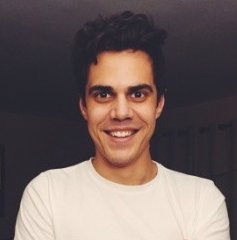Tillman Huett is the CEO of Fast Fit Foods, Colorado’s fastest-growing meal service. Fast Fit Foods provides affordable, fully cooked all-natural meals to over 10,000 people in Colorado and Florida.
Previously, Tillman spent years in Beijing, China working as the Academic Director of the China Youth Business league, one of the largest case competition leagues in the world partnered with the Wharton China Business Society at the University of Pennsylvania. Tillman is interested in entrepreneurship and sustainably growing startups into large enterprises. In the past, Tillman has been involved with a variety of startups, from Bitcoin investment funds to men’s luxury apparel.

Q: What would you like to see your team accomplish in 2019?
I would like to see my team finish our most recent business acquisition in Florida, and integrate the company into our operations. This acquisition added 35% to the size of Fast Fit Foods in terms of headcount and revenue, and if the acquisition is ultimately successful, this is the catalyst for sustained rapid growth. Continuing to find new opportunities for growth is the key to rapidly building a formidable business.
Q: What were the most challenging areas in the early stages of the company’s growth?
The most challenging area in our early stages was finding staff who were as obsessed with our mission as our leadership is. Fast Fit Foods is committed to providing access to affordable nutrition, especially the 23.5 million Americans that live in food deserts. Finding staff that were obsessed with that mission was very difficult, especially when we were smaller because there was no evidence that we were doing worked or was popular. As we’ve grown rapidly, more people are able to see our vision of a world where everyone has ready access to vital nutrition.
Q: Who is your role model or hero?
Steve Schwarzman because he built one of the most successful financial services/private equity funds in the world at an older age. It’s inspiring that life always has opportunities, especially to those smart and hungry enough to take advantage of them. With only $400,000 in equity ($200,000 each from him and his partner), they were able to build a company that now has billions of dollars under management and has arguably one of the best private equity and real estate investing records in the world.
Q: What is your favorite book?
Never Split the Difference by Chris Voss.

Q: Do you use any specific method or system to run daily operations?
I use bullet journaling and breaking down large goals into their constitutive elements, and I focus on accomplishing those things. I divide the year into quarters, isolate 3-5 large objectives that I need to accomplish in that quarter, and then begin working backwards to map 12 weeks of smaller tasks that accomplish the objectives. This helps me keep my eyes on the ball—it’s very easy for the urgent to overwhelm the important, and focusing my tasks daily, weekly and monthly to accomplish my major milestones ensures that I’m making meaningful progress.
Q: Why did you choose your present industry at this time?
The meal service industry is expanding rapidly, as more people become aware of the time they can save by not cooking juxtaposed with the desire to be knowledgeable and confident about what you’re eating. On the one hand, people don’t have time to cook, and on the other hand, fast food isn’t cheap and isn’t good for you. An ability to help people develop a healthy relationship with food and provide access to affordable nutrition is very inspiring to me.
Q: What is the best/worst moment you can remember in your career?
The worst moment of my career was the failure of an investor-backed startup that I had led for years. At the time, the loss was devastating and humiliating—after dedicating years of my life to a company that I was unreasonably confident would be successful, and watching it all crumble, I felt immense personal failure.
No one wants to tell their investors that it was over, and no one wants to see a company that became intertwined with their identity fail. Looking back now, years later, I think it was one of the best things to happen to me personally. It humbled me and forced me to continue to improve as a leader, but at the time, I felt it was a permanent scar on my professional reputation and career.
Q: Looking back – if you could advise a younger version of yourself to do something different – what would it be?
Meet as many people as you can with diverse viewpoints and learn from them. It’s odd how many relationships bloom late in life when the seeds are planted years earlier. The world is small, and you’re very likely to run across the same people as your career advances.
Finding people with diverse viewpoints and experiences teaches you that there is nothing new in the world—for every problem, there is someone somewhere who has experienced it (history is a huge help here!). Diverse viewpoints force you to justify your positions and beliefs and also helps prevent you from making avoidable mistakes. Just because you can’t see the problem doesn’t mean someone else can’t. Nurturing the skill when you’re young will keep your ego in check and inspire you to be a lifelong learner.



